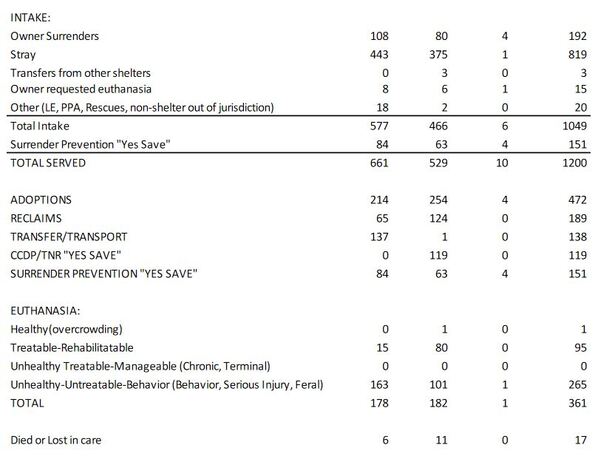|
There is a bill pending in the Colorado Legislature I firmly oppose because it is dangerous. House Bill 21-1120. I do not live in Colorado so you may ask, “why do you care about that bill?” I care because laws can be infectious both for the good and the bad. A bad law in one state can spread to others and I think it’s up to all of us to keep that from happening. Some explanation is in order. When I first learned at what was happening at the shelter in the city where I work over 15 years ago, I was shocked, angry, upset, and emotional. Like most Americans, I presumed that animals died in shelters because they were suffering. As I have blogged about before and wrote about in my book, I had a rude awakening in the summer of 2006 when I learned that healthy and treatable animals died at the shelter every day for no other reason than that is what had happened for years. “Catch and kill” and “first in, first out” were the status quo. I was like most people who probably should have known what was happening at the shelter, but just did not. It had not been on my personal radar. This unwelcome epiphany led me to a journey of educating myself about why this was happening not just in my area, but across the country. I came to realize that animal shelters in our country are, for the most part, our public shame. We call ourselves animal friendly and we say we cheer for the underdog while we hold our values above those of other cultures. Shame on us. Part of my education was learning about something called the Asilomar Accords. This was essentially a meeting of the minds in animal welfare which was held in Pacific Grove, California, in 2004. The stated goal of the Accords was to build “bridges across varying philosophies, developing relationships and creating goals focused on significantly reducing the euthanasia of healthy and treatable companion animals in the United States.” That may sound like great goals. What really happened was that the Accords focused more on people and not offending anyone and less on saving animals. The outcome was definitions for a series of words and phrases which are used to classify animals in shelters: Healthy Treatable/rehabilitatable Treatable/manageable Unhealthy and untreatable We are now almost 20 years removed from the Accords. The result has been not an increased focus on life-saving, but use of words by shelters which are inconsistent with the words are used by the public. The Accords have been used to categorize animals who could have, and should have, been saved, but instead were killed after having been put into a category that attempts to make that action more acceptable in some bizarre way. No one would dispute that an animal who is suffering or irremediably ill should be euthanized. But what about neo-natal animals? Old animals? Blind or deaf animals? Animals with conditions like epilepsy, megaesophagus, Wobbler’s Syndrome, paralysis, allergies or broken limbs? What about community cats? What about animals who get sick only after they enter a shelter or animals who develop behavior issues in the shelter due to the shelter environment itself? I think all these animals should be saved. Progressive shelters do save them. Regressive shelters do not. The words from the Accords are used as political cover to classify animals and then end their lives. It happens every day and may be happening in the community where you live. This brings me back to Colorado House Bill 21-1160, called the Care of Dogs & Cats in Pet Animal Facilities. This bill is the Colorado version of the Accords, but worse because it says so little so poorly. It hinges on the definitions of two words that are not well defined: healthy and safe. Sound familiar? Much like the Accords have been used to classify and then destroy animals for almost two decades, this bill creates a license to kill. At the heart of the bill are definitions for the words “healthy” and “safe.” The fact that the bill does not define those words more specifically or by referring to an evaluation matrix is terribly problematic. This means that animals are put at risk for conditions or behavior which may lead to their death unnecessarily, some of which may have been created by the shelter environment itself. The bill also refers to a concept called Socially Conscious Sheltering which I have blogged about before; the words sound positive and they are. The issue is when those words are used to end the lives of animals needlessly. I know it can be hard for people outside of animal welfare circles to believe that animals in shelters are destroyed for having been classified using words, but it happens every day. Animal shelters use words like healthy, unhealthy, treatable, untreatable, safe and unsafe – all of which are open for interpretation - while making it sound like the animals were saved from some fate worse than death. Also not included in the bill is any language setting forth the qualifications of the people making decisions on whether animals are considered healthy or safe and, by extension, which animals live or die. Is that a decision made by a veterinarian who is trained in shelter medicine? Does it involve evaluation by a trained behaviorist who evaluates dogs outside of the shelter facility itself (since many fear-based behaviors are caused by the way in which dogs are traditionally housed. We must remember that the animals who could pay the ultimate price from this bill are not just numbers on a sheet of paper. They are living, sentient beings who are worthy of our very best, because that is what the public expects. The dog destroyed may be our own who is so scared in a shelter he shows his teeth or cowers in a kennel corner. The cat destroyed may have been our neighbor's beloved pet who presented as feral out of fear because she had never been outside of her own home. I learned long ago that statutory law is a tricky thing; words in a law are there for a reason and if words are not there, that is with intent. If the same bill can be read by ten different people who come away with ten different interpretations, the bill is fatally flawed. A bad bill is worse than no bill. Once it becomes law, it can be complicated to say, "oh, no. That's not what we meant or what we intended." This is one of those bills. I have heard from many people that they interpret the wording of the bill differently than I do. That alone is a red flag which tells us this bill must be stopped to avoid taking Colorado back in time rather than making it more progressive. I applaud any city, county or state which decides to take proactive steps to improve the lives of pets in need and to help them either get back home or get to new homes. House Bill 1160 is not that bill.
If you live in Colorado, I encourage you to read the latest version of the bill and then consider stating your opposition to the bill. It has already made it through the House and is set to be heard by the Senate Agricultural and Natural Resources Committee on April 22, 2021. You can email the committee members in addition to your own state senator. You can also sign up to testify remotely or using written testimony, which is what I did. If you do not live in Colorado, you can still have an opinion on this bill. The bill is backed by some organizations with lots of money and is being promoted by sponsors who likely are not educated enough on how animal shelters operate to see the danger this bill presents. The only way to stop the bill is for us to speak up and do our part to say there are better ways to help shelter animals in Colorado. To learn more, visit these links. MaxFund Opposition to House Bill 21-1160 No Kill Colorado Opposition to House Bill 21-1160 House Bill 21-1160 FAQs Sample Letters about House Bill 21-1160 Organizations Which Oppose House Bill 1160
0 Comments
Your comment will be posted after it is approved.
Leave a Reply. |
AuthorI am an animal welfare advocate. My goal is to help people understand some basic issues related to companion animals in America. Awareness leads to education leads to action leads to change. Archives
July 2024
Categories
All
image courtesy of Terrah Johnson
|



 RSS Feed
RSS Feed